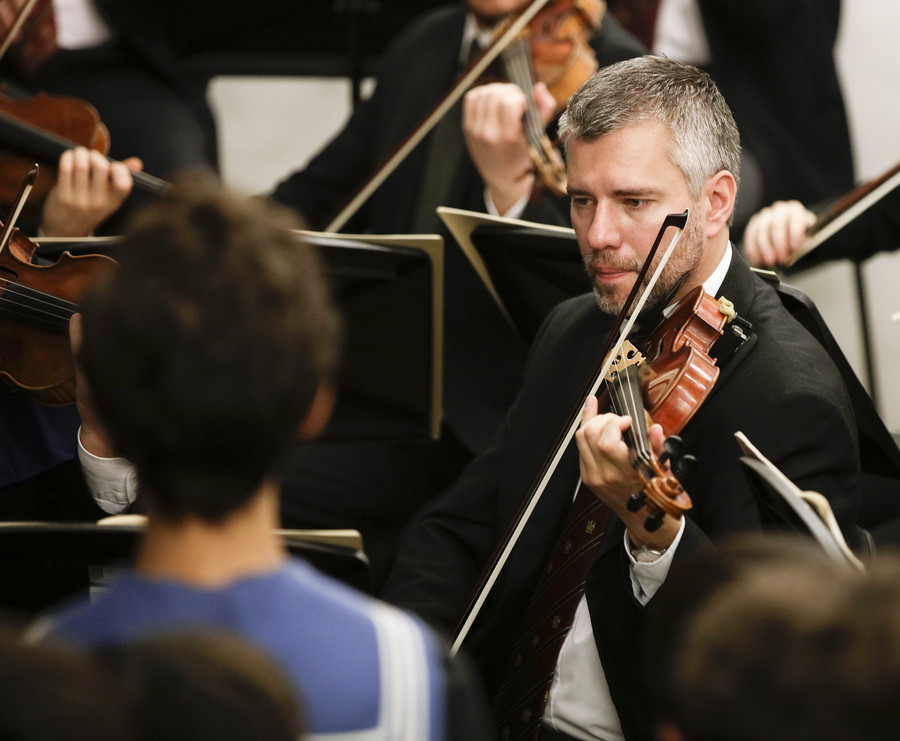Missa brevis in G-major, KV 49
Mozart wrote the Missa brevis in G-major KV 49 – his first mass composition – in 1768 at the age of twelve years. It is very likely that his father Leopold assisted him in writing it. In his early masses, Mozart integrated a great number of ideas, some of which reemerge in his mature mass compositions. At this early age, Mozart still seemed to struggle with the relationship between music and text, as the numerous drafts reveal. The solo parts in the mass are rather short, except for the passage „et in Spiritum Sanctum Dominum“, an arioso for a bass singer, which he allegedly wrote for a nun called Nepomucena, who had an extremely deep voice. The by-name “Ursuline mass” derives from the fact that the mass most likely premiered at the Ursuline convent St. Ursula in Vienna. Today the former convent is home of the Institute for Organ, Organ Music and Church Music of the University of Music and Performing Arts Vienna.
Translation: Nora Tunkel
Conductor: Martin Schebesta
Organist: Elke Eckerstorfer
Choir: Vienna Boys Choir, Vienna State Opera men's choir, Choralschola of the Imperial Court Chapel,
Orchestra: Members of the Vienna Philharmonic Orchestra
Ticket reservation at office@hofmusikkapelle.gv.at
Online ticket sale through Culturall:


